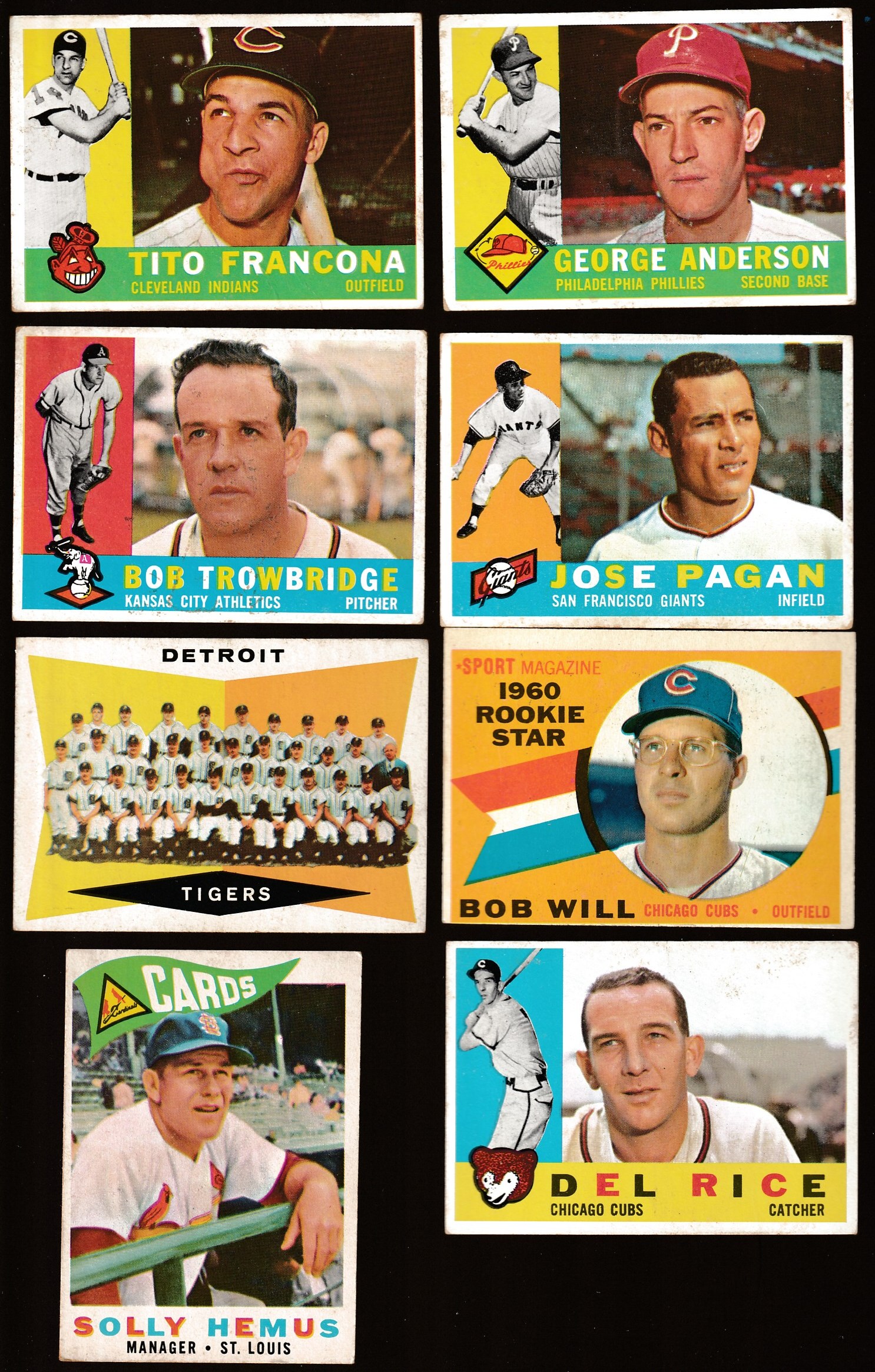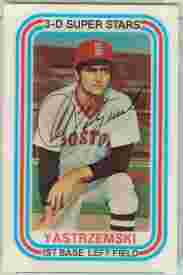1960 Topps # 72 Tigers TEAM card
The checklist on back is UNMARKED !

Please wander around the website for more info, prices, values & images
on vintage baseball, football, basketball, hockey, sport and non-sports cards.

1961 Post Cereal Baseball Checklist & Values
1961 Post Cereal consisted of 200 cards measuring 2-1/2" by 3-1/2".
Post distributed the cards (six each) via the back panel of cereal boxes
or through the mail where fans could order certain cards as part of a
large pre-perforated sheet.
The set was loaded with superstars like Mickey Mantle, Hank Aaron, Roberto Clemente
and Willie Mays but the key cards turned out to be very scarce short prints like
#73 Chuck Estrada and the scarcest #94 Chuck Stobbs.
Click for complete
1962 Post Cereal baseball cards checklist & prices
There cards were issued in 2 different ways ... on the backs of selected boxes of Post Cereal or you could send away and get special 10-card perforated team sets. Click for complete 1962 Post Cereal Canadian baseball cards checklist & prices Click for complete 1963 Post Cereal baseball cards checklist & prices Click for complete 1961 Post Cereal baseball cards checklist & prices Note: You may be on that page right now. |


1976 Kellogg's Baseball |

Cabinet Card Were oversized trading cards featuring paintings issued mostly 1910-1915.
Card Show is a gathering of dealers & collectors looking to buy/sell/trade sports cards and memorabilia.
Card Stock is the material a card is printed on. Usually paper-based, today companies play with the card stock and sometimes it appears to be wood or leather or see-thru acrylic ...
Cello Pack is a card pack whose wrapper is see-thru plastic. Usually the top & bottom cards are seen. Unopened cello packs showing major stars and rookies sell for heavy premiums.
Centering is the balance of the borders: top/bottom & left/right. On perfectly-centered cards, top/bottom borders match as do the left/right borders. Centering is presented as a set of numbers & directions and often included with the grade. Perfectly-centered is "50/50 t/b" AND "50/50 l/r". As centering gets worse, one number increases and the other decreases. For example: 90/10 t/b is considered extremely off-center top to bottom. The numbers add up to 100 (50/50, 60/40, 90/10 ...).
Certificate Of Authenticity (COA) A document used to verify legitimacy of a collectible. NOTE: Keep in mind that COA's are easier to fake then autographs.
Common A card of a non-star player is considered a "Common" as opposed to cards of a star players or specialty/subset cards such as league leaders, teams cards, World Series cards...
Condition (Grade) Centering, corner wear, photo clarity, edges, creases, print flaws ... all combine to determine a card's condition or grade. Along with rarity/scarcity it is the major factor in a card's value.
Crease Defect usually caused by bending the card. Hard to see, or not, a crease lowers the card's grade (VG or lower) and greatly diminishes it's value.
